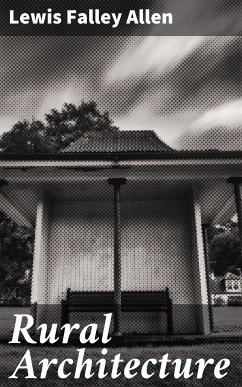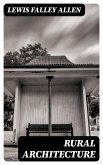In "Rural Architecture," Lewis Falley Allen presents a detailed examination of practical design principles and aesthetics for rural structures in the 19th century. Through a blend of informative text and intricate illustrations, Allen captures the essence of architectural forms tailored to the needs of rural communities. His work not only serves as a guide for constructing functional yet aesthetically pleasing buildings but also reflects the burgeoning interest in American vernacular architecture during a period marked by rapid industrialization and societal change. Each chapter thoughtfully addresses various building types'Äîranging from farmhouses to barns'Äîemphasizing their harmonious integration with the surrounding landscape. Lewis Falley Allen, an architect and advocate for rural development, emerges from a background steeped in a commitment to enhancing rural living standards through better architectural practices. His firsthand experiences observing rural life and architecture informed his perspective, prompting him to compile this essential text. Allen's career and his interactions with local communities highlight his belief in architecture as a means to improve social, economic, and aesthetic conditions in rural settings. Highly recommend "Rural Architecture" for architects, historians, and anyone interested in the intersection of design and rural life. Allen's meticulous research and dedication to the subject make this book a pivotal resource that not only educates but also inspires contemporary architectural discourse, encouraging a return to thoughtful design in rural contexts.
Dieser Download kann aus rechtlichen Gründen nur mit Rechnungsadresse in A, B, BG, CY, CZ, D, DK, EW, E, FIN, F, GR, H, IRL, I, LT, L, LR, M, NL, PL, P, R, S, SLO, SK ausgeliefert werden.









